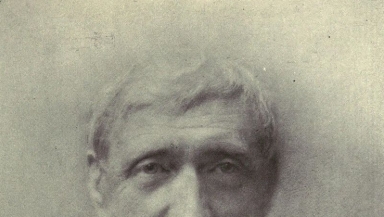
On Sunday, the Catholic Church gained five new saints into the canon. For the first time in almost fifty years, a British man, Cardinal John Henry Newman, was canonised. Alongside him, four women were also made saints – Giuseppina Vannini, Mariam Thresia Chiaramel Mankidiyan, Dulce Lopes Pontes and Marguerite Bays.
Over 50,000 people attended the mass in St Peter's Square in Rome, where Pope Francis formally canonised these five new saints. Including pilgrims from across the world, the official British delegation also included HRH Prince Charles, Cardinal Vincent Nichols and representation from Anglican clergy. Among those taking part in various aspects of the mass were Melissa Villalobos and her seven children. Melissa is the recipient of a second miracle attributed to St John Henry Newman, which ultimately verified his saintly status. Melissa prayed to St John Henry Newman when complications in her pregnancy became fatal for her baby. She describes the bleeding as having "stopped immediately" following her petition.
St John Henry Newman began his religious life as an Anglican clergyman, who later converted to Catholicism in 1845. He founded the Oratory of St Philip Neri in England and later became a cardinal. He lived in Birmingham for over forty years, which is why, in 2010, he was beatified (made blessed) by Pope Benedict XVI in Cofton Park in the Midlands. He was both a theologian and a writer, with his poetic writing becoming immortilised in hymns such as "Lead, Kindly Light", "Praise to the Holiest" and "Firmly I Believe and Truly".
Three of the four other saints canonised at the weekend founded or belonged to a range of religious orders. St Giuseppina Vannini founded the Daughters of Saint Camillus, who care both physically and spiritually for the sick, working in hospitals, nursing homes and rehabilitation centres. St Giusepinna Vannini is the first Roman woman to be canonized in 400 years. Secondly, St Mariam Thresia Mankidiyan was also the mother superior of an order that she founded in Kerala, India. The Congregation of the Sisters of the Holy Family also assisted the sick, as well as the poor and other groups in need. She is understood as an informal patron saint and intercessor for couples who are not able to have children. Thirdly, St Dulce Lopes Pontes – now known as St Dulce of the Poor – is the first Brazilian woman to have been made a saint. Her work in Salvador meant that she was nominated for a Nobel Peace Prize.
St Dulce comes close to having the fastest track to canonisation. Apart from some well-known names such as Pope St John Paul II, who was canonised a mere nine years after his death, and St Teresa of Calcutta (otherwise known as Mother Teresa), who was canonised 19 years after her death – there are few saints that are privy to a fast-track in a processes that usually takes centuries. St Dulce died in 1992, meaning that her work, achievements and life are captured across a range of modern mediums.
Finally, St Marguerite Bays takes her place among the notably fewer saintly lay women. St Marguerite was a seamstress, living in Switzerland in the nineteenth century. She did not join an order but dedicated her life to her local community and to prayer. The Vatican-approved miracle attributed to St Marguerite was seen through the prayers of the family of a two-year-old that was run over by a tractor. The toddler was completely healed from life-threatening injuries almost immediately.
During his homily at the canonisation mass, Pope Francis quoted Newman saying: "The Christian has a deep, silent, hidden peace, which the world sees not ... The Christian is cheerful, easy, kind, gentle, courteous, candid, unassuming... with so little that is unusual or striking in his bearing, that he may easily be taken at first sight for an ordinary man."
This quote demonstrates our own, individual, daily callings to sainthood. Whilst we may feel unassuming, or even wish to actively hide our Christianity, these new saints demonstrate that a dedication to faith creates lives that are far from ordinary.
Celebrations will continue this week throughout England and the world in honour of our new saint, John Henry Newman. A thanksgiving mass will be held at Westminster Cathedral, a discussion of Cardinal Newman's life with Bishop Robert Barron in Oxford, and a service of ecumenical vespers at St Chad's Cathedral (Birmingham).
Nina Mattiello Azadeh studied music and philosophy and was a Faith in Politics media intern in 2016. She has a keen interest in interfaith relations, social action and is a classical ballet dancer. Follow her on Twitter @Ninamataz













